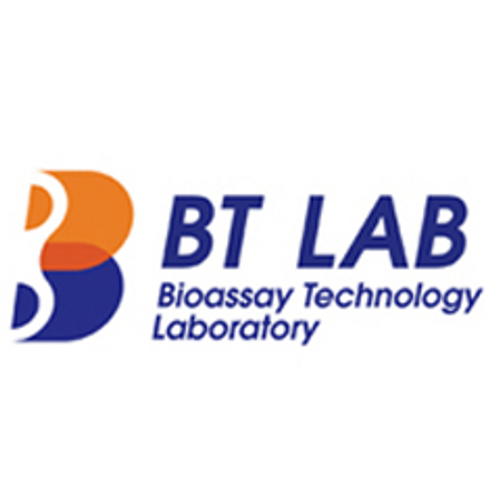Product Description
Mouse Dual specificity protein kinase CLK1 (CLK1) ELISA Kit | KTE71402 | Abbkine
Application: This Mouse Dual specificity protein kinase CLK1 (CLK1) ELISA Kit employs a two-site sandwich ELISA to quantitate CLK1 in samples. An antibody specific for CLK1 has been pre-coated onto a microplate. Standards and samples are pipetted into the wells and anyCLK1 present is bound by the immobilized antibody. After removing any unbound substances, a biotin-conjugated antibody specific for CLK1 is added to the wells. After washing, Streptavidin conjugated Horseradish Peroxidase (HRP) is added to the wells. Following a wash to remove any unbound avidin-enzyme reagent, a substrate solution is added to the wells and color develops in proportion to the amount of CLK1 bound in the initial step. The color development is stopped and the intensity of the color is measured.
Detection Method: Colorimetric
Conjugate: N/A
Sample Type: Cell culture supernatants#Serum#Plasma#Other biological fluids
Assay Type: Multiple steps standard sandwich ELISA assay with a working time of 3-5 hours. It depends on the experience of the operation person.
Kit Component: • Mouse Dual specificity protein kinase CLK1 microplate
• Mouse Dual specificity protein kinase CLK1 standard
• Mouse Dual specificity protein kinase CLK1 detect antibody
• Streptavidin-HRP
• Standard diluent
• Assay buffer
• HRP substrate
• Stop solution
• Wash buffer
• Plate covers
Features & Benefits: Mouse Dual specificity protein kinase CLK1 (CLK1) ELISA Kit has high sensitivity and excellent specificity for detection of Mouse CLK1. No significant cross-reactivity or interference between Mouse CLK1 and analogues was observed.
Calibration Range: Please inquire
Limit Of Detection: Please inquire
Usage Note: • Do not mix components from different kit lots or use reagents beyond the kit expiration date.
• Allow all reagents to warm to room temperature for at least 30 minutes before opening.
• Pre-rinse the pipet tip with reagent, use fresh pipet tips for each sample, standard and reagent to avoid contamination.
• Unused wells must be kept desiccated at 4 °C in the sealed bag provided.
• Mix Thoroughly is very important for the result. It is recommended using low frequency oscillator or slight hand shaking every 10 minutes.
• It is recommended that all samples and standards be assayed in duplicate or triplicate.
Storage Instruction: The unopened kit should be stored at 2 - 8°C. After opening, please store refer to protocols.
Shipping: Gel pack with blue ice.
Precaution The product listed herein is for research use only and is not intended for use in human or clinical diagnosis. Suggested applications of our products are not recommendations to use our products in violation of any patent or as a license. We cannot be responsible for patent infringements or other violations that may occur with the use of this product.
Background: DCAMKL1 is a microtubule-associated kinase that can undergo autophosphorylation. DCAMKL1 also has microtubule-polymerizing activity that is independent of its protein kinase activity. The KIAA0369 cDNA encodes a 740-amino acid peptide that shares 72.3% amino acid identity with doublecortin. The protein has a doublecortin domain, a serine/proline-rich domain, and a calmodulin-dependent kinase-like domain. The authors also identified 4 splice variants of KIAA0369. All splice variants were expressed predominantly in fetal brain, with transcript sizes ranging from 8.0 to 5.0 kb. Varying expression of all isoforms was also seen in all 15 regions of adult human brain examined, with greatest expression seen in cerebral cortex, occipital pole, frontal lobe, amygdala, and hippocampus.
Alternative Names: CLK1; CLK; CLK/STY; STY; CDC28/CDC2-like kinase; dual specificity protein kinase CLK1; protein tyrosine kinase STY
Search name: CLK1; CLK; CLK/STY; STY; CDC28/CDC2-like kinase; dual specificity protein kinase CLK1; protein tyrosine kinase STY
Tag: CLK1
 Euro
Euro
 USD
USD
 British Pound
British Pound
 NULL
NULL












